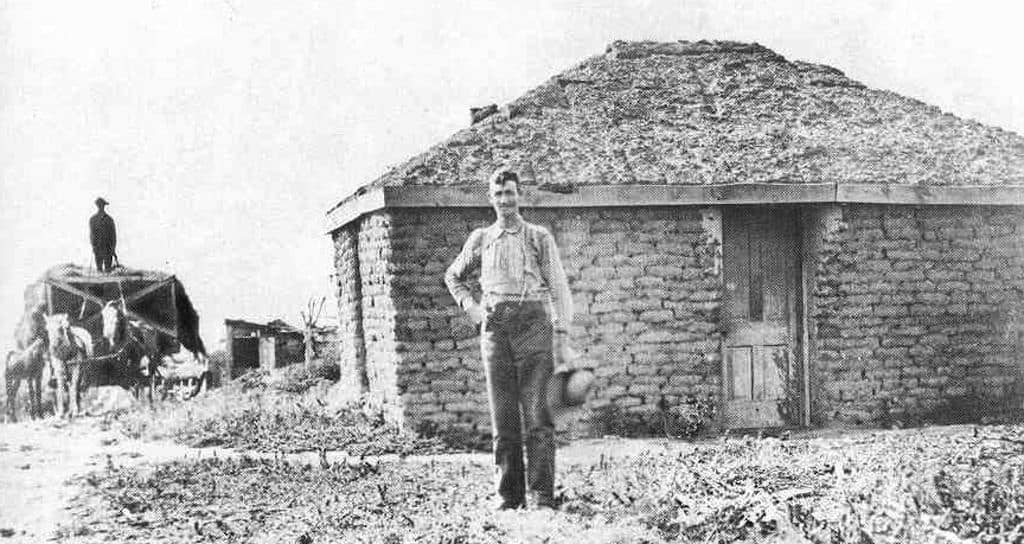September 23, 1880, was just another day on a farm near Gallatin, Tennessee, when David Lang was walking across his fields. The area where he was walking was large and flat. There were no trees or stones or fences in the area. Lang’s wife and children were watching him from the house. Two men in a buggy were riding by and also watched Lang as he made his way across the field. Suddenly, in the view of everyone, Lang vanished in mid-step. One moment he was walking and the next moment he was gone.

David Lang Vanishes
The first conclusion by those who had been watching him was that he had fallen down a hole in the ground. But searching the area showed no hole or other explanation for his disappearance. Once it became obvious that Lang had just vanished without explanation, his wife became hysterical and witnesses took her back to the house. Neighbors joined the search but there was no sign of Lang. Eventually, the searches were called off.
The Disappearance of Ambrose Bierce
One year later, Lang’s daughter stood in the spot where Lang had vanished and called out to her father several times. Not getting a response, she was turning to go back to the house when she heard a faint cry for help in her father’s voice. She ran and got her mother who went to the spot and also heard her husband’s voice. They returned the following day and once again heard Lang calling for help, although the cry was fainter. After several days the voice was too faint to hear and it was never heard again.
One source says that in the spot where David Lang vanished the grass grew unnaturally well, although no insects would go near it and livestock refused to graze there. Other sources report the exact opposite — grass never grew there but it would grow lush all around the area.
Origin of the Story
In 1888, author Ambrose Bierce published “The Difficulty of Crossing a Field” in the San Francisco Examiner. The tale depicts a slave owner who vanishes into thin air on his farm. Subsequently, the courts declare him dead and divide up his estate according to law.
Most literary historians credit Bierce’s work as the origin of the David Lang story. Here is an excerpt:
[blockquote align=”none” author=”Ambrose Bierce”]Williamson strolled leisurely down the gravel walk, plucking a flower as he went, passed across the road and into the pasture, pausing a moment as he closed the gate leading into it, to greet a passing neighbor, Armour Wren, who lived on an adjoining plantation. Mr. Wren was in an open carriage with his son James, a lad of thirteen . . . . At that moment one of the coach horses stumbled and came near falling. It had no more than fairly recovered itself when James Wren cried: “Why, father, what has become of Mr. Williamson?” . . . .
As we got out of the carriage at the gate of the field, and while Sam was hanging [sic] the team to the fence, Mrs. Williamson, with her child in her arms and followed by several servants, came running down the walk in great excitement, crying: ‘He is gone, he is gone! O God! what an awful thing!'[/blockquote]
The element that did not originate from Bierce’s story is the part where Lang’s daughter goes out to the spot and hears his faint voice crying out for help.
A Folk Story Enters Pop Culture
The original story by Ambrose Bierce was so intriguing that it kept resurfacing. He also included it in his anthology Can Such Things Be? in 1893. Subsequently, Fate Magazine published the story of David Lang in their July 1953 issue. Allegedly, that version contained an interview with Lang’s daughter. However, their tale is most likely not related to any actual person, since according to the Census and other records, there is no listing for a Lang family living in the area in 1880.
In a show not far off from the David Lang version, The Twighlight Zone came out with an episode in 1962, “Little Girl Lost,” about a child who vanishes into the fourth dimension from where her parents can hear her faint cries for help. Finally, as one of the readers of Historic Mysteries commented under this article, in 2002, a man by the real name of David Lang produced a musical play also called, “The Difficulty of Crossing a Field.”
Ironically, in 1913, the author Ambrose Bierce did disappear without a trace allegedly somewhere in Mexico.
Sources:
The Anomalist, No. 7, Winter 1998/99.
Bierce, Ambrose.”Present at a Hanging.” Contains “The Difficulty of Crossing a Field.”
Wallechinsky, David, and Irving Wallace. The Peoples Almanac. Garden City, NY: Doubleday, 1975.
Updated July 28, 2019.